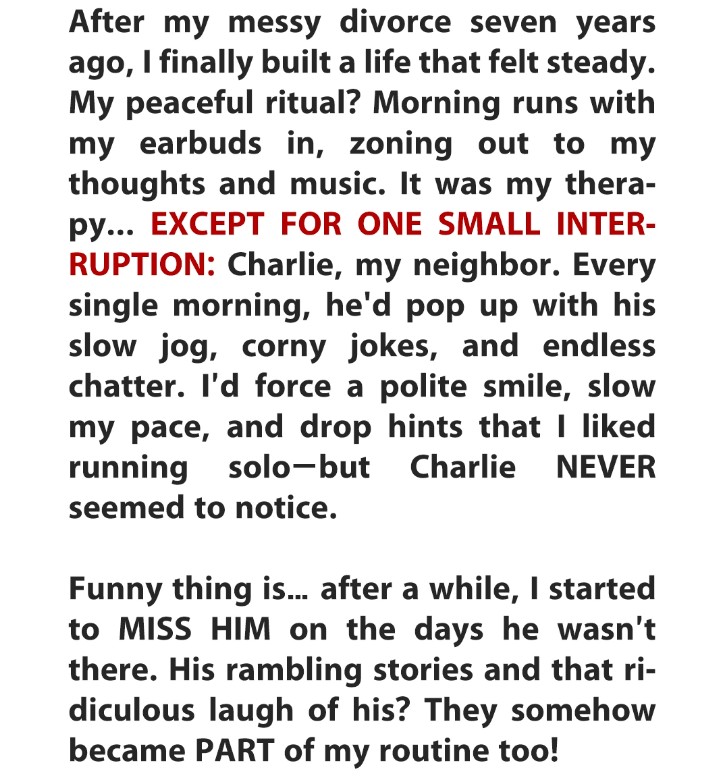Rebecca’s life was a fortress of routine. Every morning at 6:30 sharp, she rose, made her bed with military precision, and jogged through the quiet streets of her neighborhood. It wasn’t just exercise—it was armor. Seven years after her divorce, she had mastered the art of solitude, trading chaos for control. Her world was clean, quiet, and closed.
Then came Charlie.
He wasn’t part of the plan. A neighbor with untied shoelaces and a grin too wide for that early hour, Charlie began joining her jogs—uninvited, unbothered, and unrelenting. At first, Rebecca found him irritating. His cheerful greetings, clumsy pace, and relentless optimism chipped away at the silence she’d built around herself. She sped up to lose him. He caught up. She ignored him. He talked anyway.
But slowly, something shifted.
Charlie didn’t ask for anything. He didn’t pry. He simply showed up—every morning, rain or shine—matching her stride, offering light conversation, and letting her be. His presence became familiar, then comforting. Rebecca never admitted it, but she began to anticipate his arrival. Her jogs felt lighter. Her mornings, less lonely.
Then one day, he wasn’t there.
Rebecca waited. She jogged slower. She checked his porch. Nothing. The absence was louder than his chatter had ever been. Panic crept in—an emotion she hadn’t felt in years. She asked neighbors. She called hospitals. She even knocked on his door.
Charlie had collapsed from a heart condition. He was recovering, but alone.

Rebecca visited him. Not out of obligation—but because she missed him. Missed the disruption. Missed the warmth. Missed the man who had quietly become her anchor.
In the days that followed, Rebecca’s routine changed. She still jogged—but now, she waited for Charlie. And when he returned, slower and more fragile, she matched his pace. Not because she had to. But because she wanted to.


